$50 covers the cost of bait required for underwater video monitoring of sharks.
$100 funds the monitoring of large marine species by one fisher.
$250 supports running two school presentations with materials.
Sharks and rays—who are in the same class of fish—are vulnerable to human induced threats like pollution, climate change, and overfishing. Global demand for their meat and fins is also contributing to severe declines in shark populations. Twenty four percent of sharks and rays worldwide are now endangered to extinction, due primarily to overfishing, and to a lesser extent due to pollution, climate change, and habitat degradation. After surviving for 400 million years on this planet, sharks and rays are now in serious trouble. Sharks and rays are an essential part of a marine ecosystem, their disappearance endangers the oceans.
MarAlliance, led by founder Dr. Rachel Graham, works to conserve sharks and rays throughout the Americas, as well as in Micronesia—a small group of islands in the western Pacific Ocean—and Cabo Verde, Africa. Scientific research to support fisheries management and conservation efforts as well as training local communities—from students to fishers—about marine wildlife are at the heart of MarAlliance’s work. MarAlliance also supports the creation and expansion of marine protected areas and legislation that enables sustainable fisheries to minimize threats and maximize protection of sharks and rays.
Rachel has been fascinated by the ocean ever since her childhood in Tunisia. She’s worked with fishers to establish effective conservation goals for nearly 20 years. In 2011, she won the prestigious Whitley Fund for Nature Gold Award, and in 2014 she founded MarAlliance to promote impactful and inclusive grassroots science and conservation of marine wildlife. Rachel is probably best known for her successful conservation work with whale sharks and she is now focused on protecting what she calls “toothy” sharks, as well as rays and other threatened marine species.
MarAlliance conducts research on sharks, rays, deep-sea fish, and fisheries in the Meso-American Region on a regular basis to identify where overfishing may be upsetting the delicate balance of the tropical marine ecosystem. Their wildlife monitoring efforts, along with social science surveys, help shape conservation strategies so that these species, as well as the human populations that depend on the ecosystem, can continue to thrive.
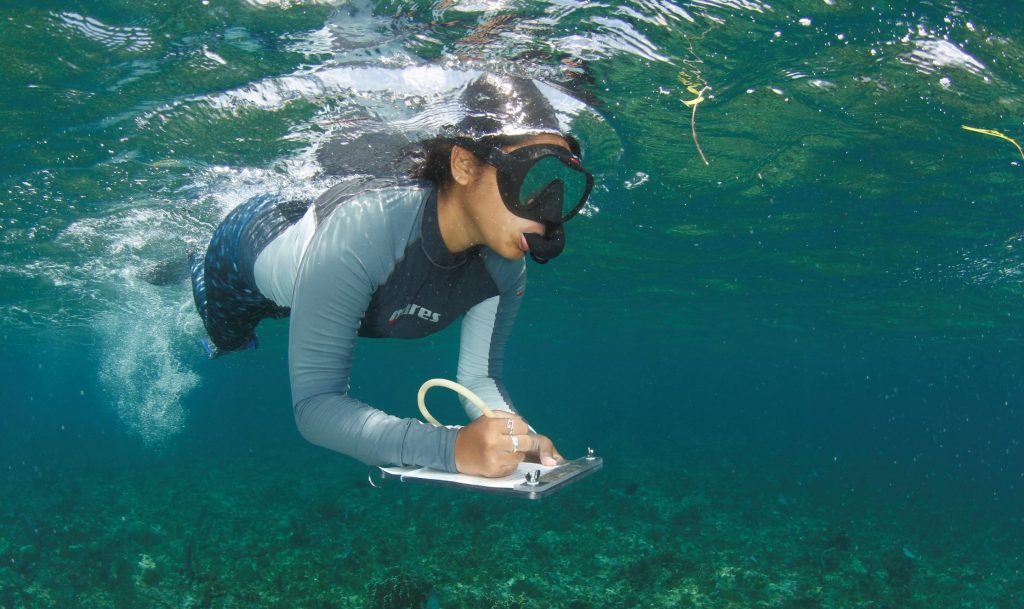
To encourage children to be fearless champions of marine wildlife, MarAlliance created the Children of the Sea program. It introduces students to sharks and rays through classroom and field experiences to understand the animal’s importance for the ecosystem while dispelling fears they might have. In Honduras, MarAlliance also reaches the wider public with educational workshops at the National Identity Museum.
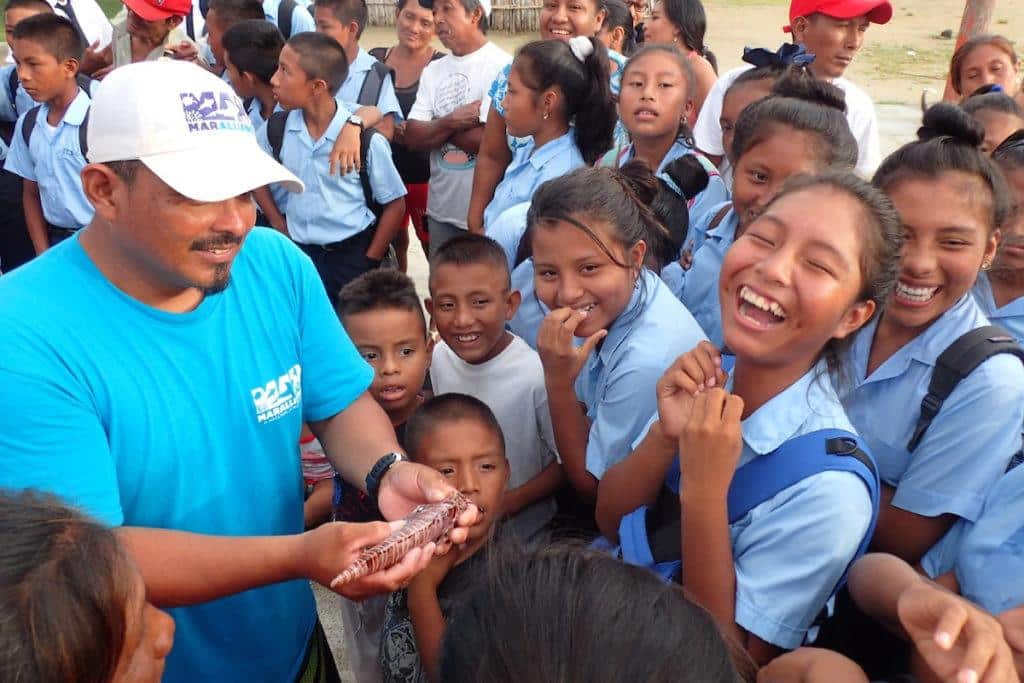
MarAlliance supports women from Panama’s Kuna Yala Comarca through the sale of unique beautiful mola masks depicting focal marine species. Molas are traditionally made and worn as clothing by Kuna women. Due to the COVID-19 pandemic, all tourism to Panama stopped and the Comarca closed its borders, so these unique and delicate masks have become an important source of income for Guna families.
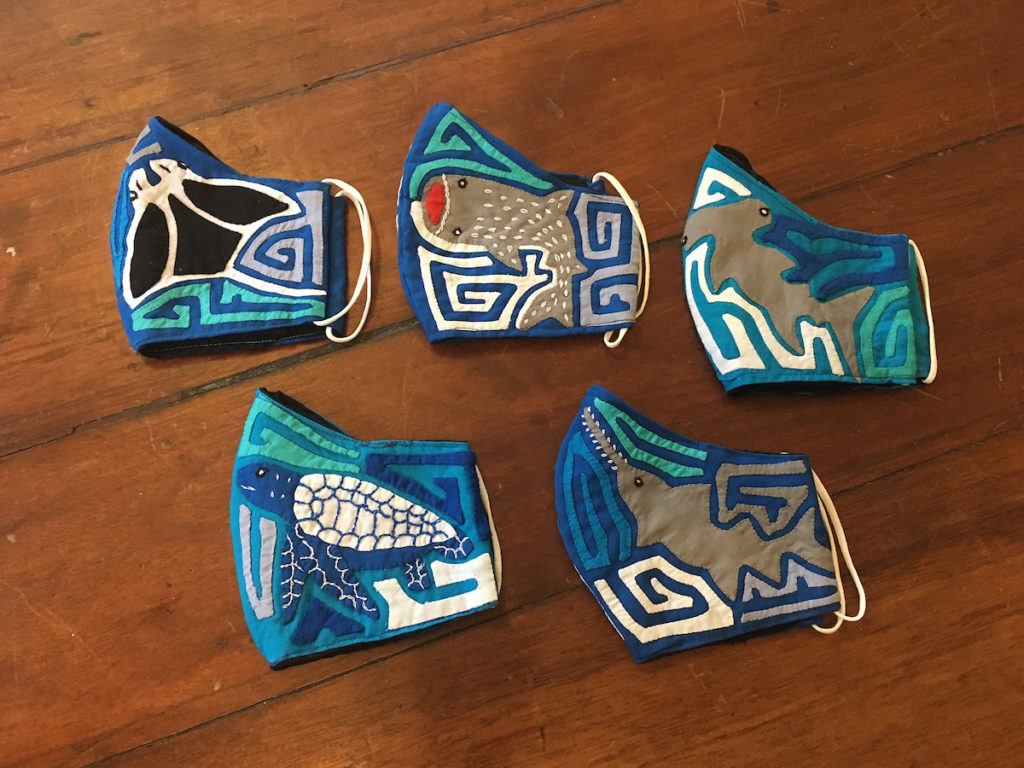
MarAlliance trains and works with local traditional fishers to conduct marine research and monitoring activities, providing a greater portion of their annual income to decrease fishing effort. Several MarAlliance partners have themselves become trainers and conducted peer-to-peer training to other fishers, building capacity while also gaining valuable traditional ecological knowledge.
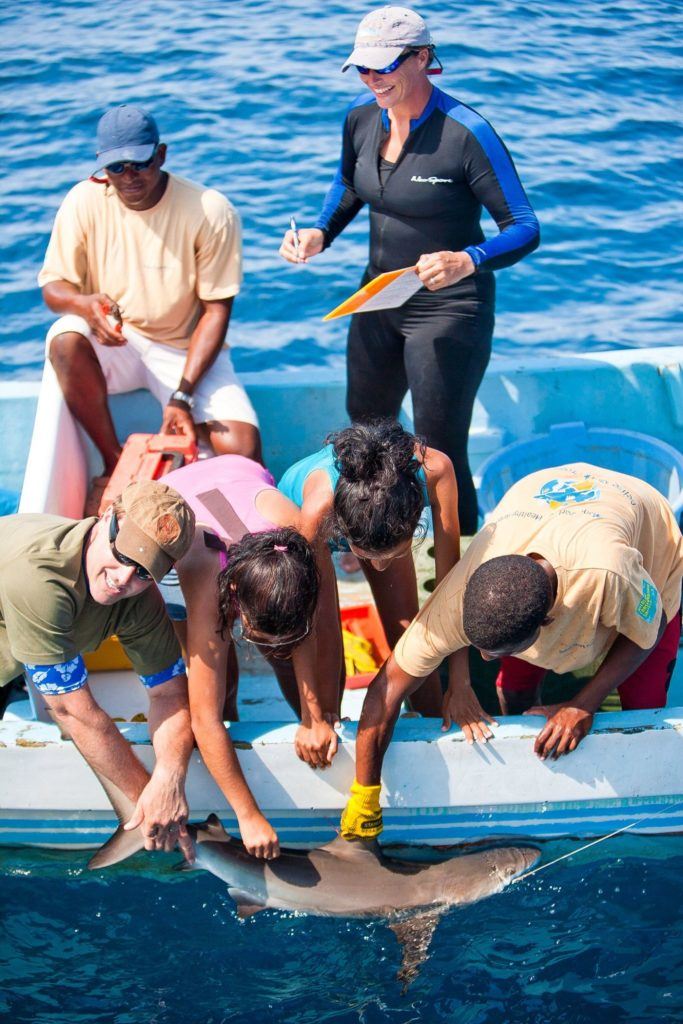
MarAlliance is a member of the The Coalition for Sustainable Fisheries in Belize, advocating for reduction of equipment that harms marine wildlife and decimates fisheries. In 2020, with MarAlliance’s support, the Belize Minister of Fisheries, Forestry, the Environment and Sustainable Development, signed into law a statute banning the use and possession of gillnets in the marine waters of Belize.
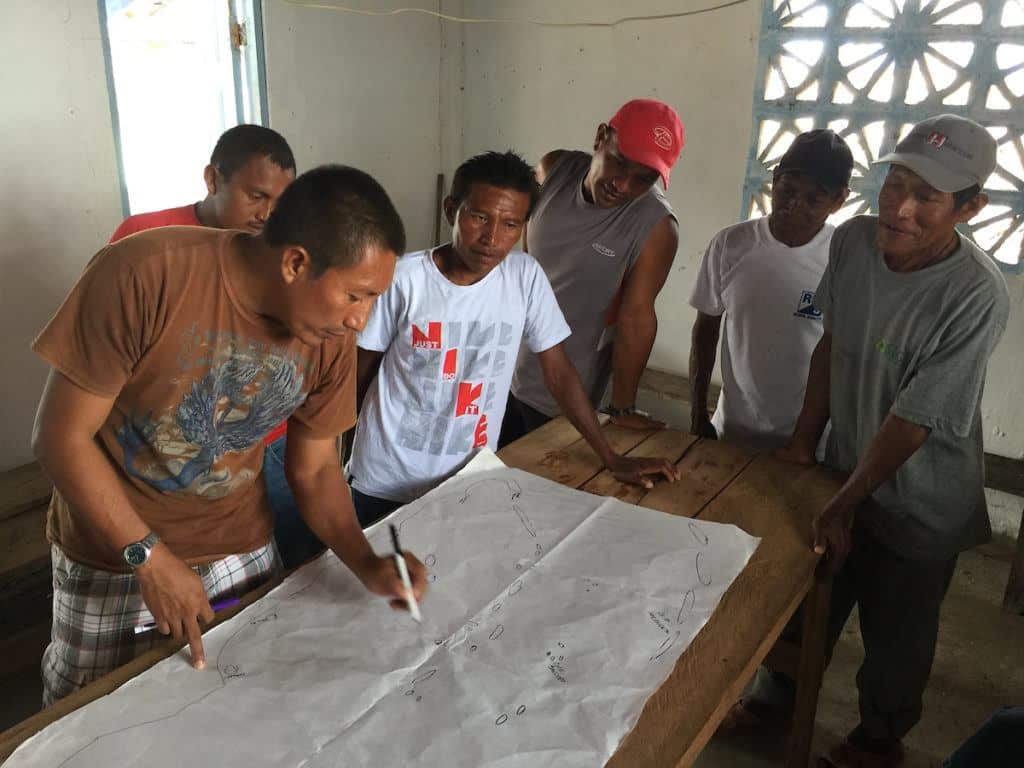
MarAlliance conducts research on sharks, rays, deep-sea fish, and fisheries in the Meso-American Region on a regular basis to identify where overfishing may be upsetting the delicate balance of the tropical marine ecosystem. Their wildlife monitoring efforts, along with social science surveys, help shape conservation strategies so that these species, as well as the human populations that depend on the ecosystem, can continue to thrive.
To encourage children to be fearless champions of marine wildlife, MarAlliance created the Children of the Sea program. It introduces students to sharks and rays through classroom and field experiences to understand the animal’s importance for the ecosystem while dispelling fears they might have. In Honduras, MarAlliance also reaches the wider public with educational workshops at the National Identity Museum.
MarAlliance supports women from Panama’s Kuna Yala Comarca through the sale of unique beautiful mola masks depicting focal marine species. Molas are traditionally made and worn as clothing by Kuna women. Due to the COVID-19 pandemic, all tourism to Panama stopped and the Comarca closed its borders, so these unique and delicate masks have become an important source of income for Guna families.
MarAlliance trains and works with local traditional fishers to conduct marine research and monitoring activities, providing a greater portion of their annual income to decrease fishing effort. Several MarAlliance partners have themselves become trainers and conducted peer-to-peer training to other fishers, building capacity while also gaining valuable traditional ecological knowledge.
MarAlliance is a member of the The Coalition for Sustainable Fisheries in Belize, advocating for reduction of equipment that harms marine wildlife and decimates fisheries. In 2020, with MarAlliance’s support, the Belize Minister of Fisheries, Forestry, the Environment and Sustainable Development, signed into law a statute banning the use and possession of gillnets in the marine waters of Belize.
due to MarAlliance's field team monitoring a total of 45 nests
$50 covers the cost of bait required for underwater video monitoring of sharks.
$100 funds the monitoring of large marine species by one fisher.
$250 supports running two school presentations with materials.